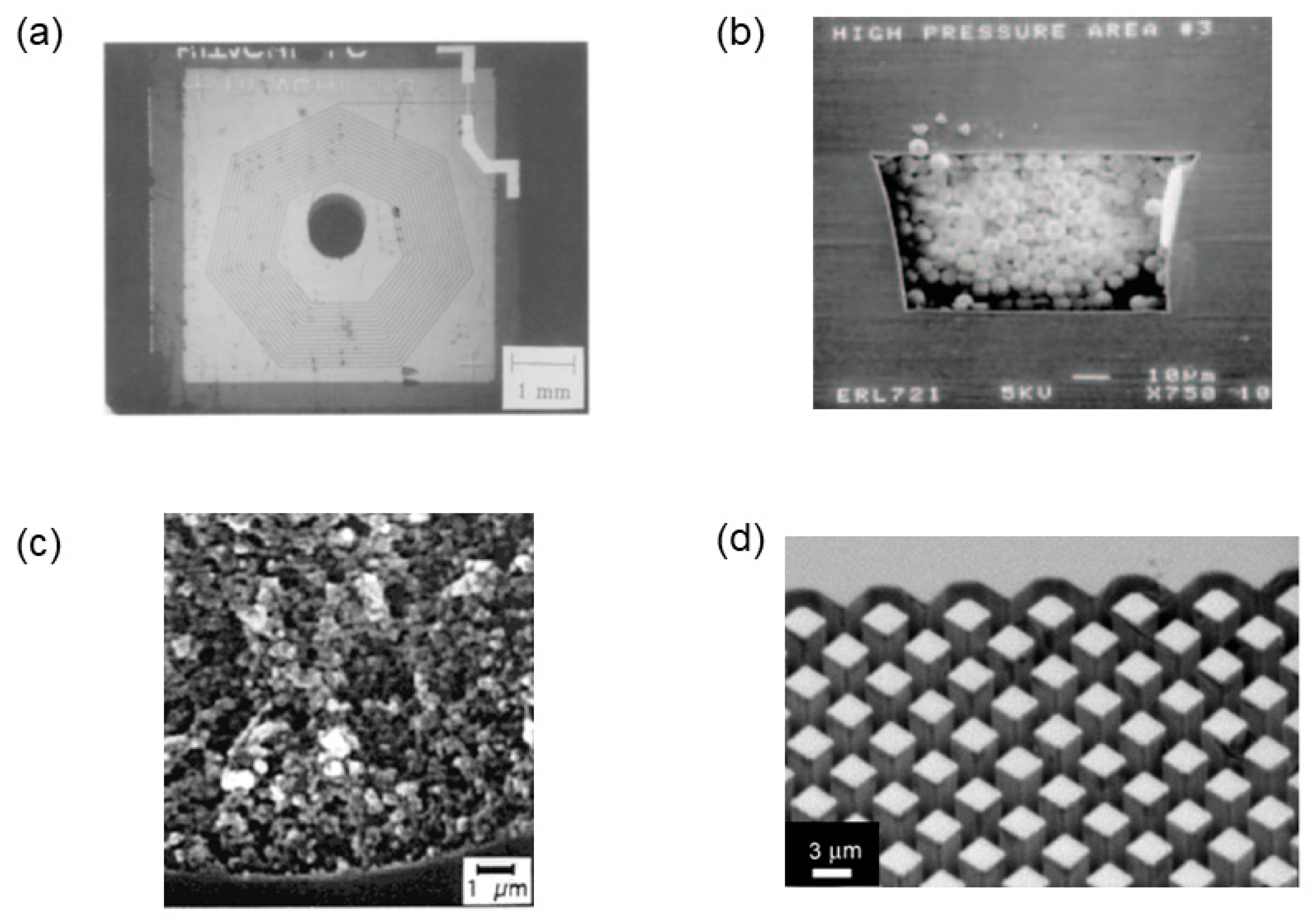On-chip liquid chromatography (LC) refers to LC technology that is miniaturized to fit on a microchip to enable fast, high-throughput analysis, with small sample volumes and low reagent consumption. Four different on-chip LC approaches have been developed to date: use of open-tubular, packed-particle, monolithic, and pillar array columns. These methods have been applied to proteomics as well as the analysis of small molecules and drugs in various biological samples. Recent advances in on-chip LC are summarized herein.
- micro total analysis system
- open tubular
- packed particle
- monolithic
- pillar array
Liquid chromatography (LC) is an indispensable separation technique with many biological, clinical, environmental, forensic, and pharmaceutical applications. Various stationary phases can be used for LC, and this technique provides highly reproducible results. In omics research, such as proteomics and metabolomics, LC coupled to mass spectrometry (LC-MS) is an effective analytical method for highly sensitive and accurate mass determination. However, it is still difficult to achieve satisfactory separation, particularly in complex mixtures such as biological samples (tissue, plasma, serum, and urine). In metabolomics, thousands of metabolites must be measured simultaneously. Furthermore, some important biological compounds are present only in small amounts, along with high concentrations of other endogenous compounds that may present interference. These challenges can be overcome through LC miniaturization.
References
- Manz, A.; Miyahara, Y.; Miura, J.; Watanabe, Y.; Miyagi, H.; Sato, K. Design of an open-tubular column liquid chromatograph using silicon chip technology. Sens. Actuators B Chem. 1990, 1, 249–255.
- Yin, H.F.; Killeen, K.; Brennen, R.; Sobek, D.; Werlich, M.; van de Goor, T. Microfluidic chip for peptide analysis with an integrated HPLC column, sample enrichment column, and nanoelectrospray tip. Anal. Chem. 2005, 77, 527–533.
- Ericson, C.; Holm, J.; Ericson, T.; Hjertén, S. Electroosmosis- and pressure-driven chromatography in chips using continuous beds. Anal. Chem. 2000, 72, 81–87.
- Aoyama, C.; Saeki, A.; Noguchi, M.; Shirasaki, Y.; Shoji, S.; Funatsu, T.; Mizuno, J.; Tsunoda, M. Use of folded micromachined pillar array column with low-dispersion turns for pressure-driven liquid chromatography. Anal. Chem. 2010, 82, 1420–1426.

